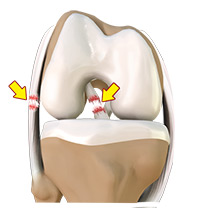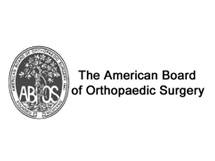Multiligament Instability

What is Multiligament Instability?
The knee is a complex joint of the body which is vital for movement. The four major ligaments of the knee are anterior cruciate ligament, posterior cruciate ligament, medial collateral ligament and lateral collateral ligament. They play an important role in maintaining the stability of the knee. An injury resulting in tear of one or more ligaments of the knee thus affects knee stability.
Causes of Multiligament Instability
Such injuries occur because of direct blow to the knee, or a fall from a height, or motor vehicle trauma. Multiple ligament knee injuries are common in athletes involved in contact sports such as soccer, football and basketball. Patients with multi-ligament knee injuries may experience pain, swelling, limited range of motion, injuries to nerves and arteries of the leg, and knee instability.
Evaluation of Multiligament Instability
Sometimes, knee pain due to other injuries results in involuntary movements that give the sensation of instability. A thorough examination by an experienced doctor is very crucial for the correct diagnosis of multiligament instability.
Treatment of Multiligament Instability
Usually grade I (mild tear) and grade II (partial tear) multiligament injuries are treated conservatively with rest, ice, compression and elevation. But, treatment of grade III (complete tear) multiligament injuries requires surgery. Moreover, unlike grade III single ligament injury, the surgery is usually performed soon after the injury and often involves more than one surgery.
The surgical reconstruction is usually performed arthroscopically. The surgery involves reconstruction of the torn ligament using a tissue graft taken from another part of the body, or from a donor. The damaged ligament is replaced by the graft and fixed to the femur and tibia using metallic screws. Gradually, over a period of few months, the graft heals.
After the multi-ligament knee reconstruction surgery, crutches may be required for 6 to 8 weeks. Most patients can also return to their high-level sport after a period of rehabilitation.










